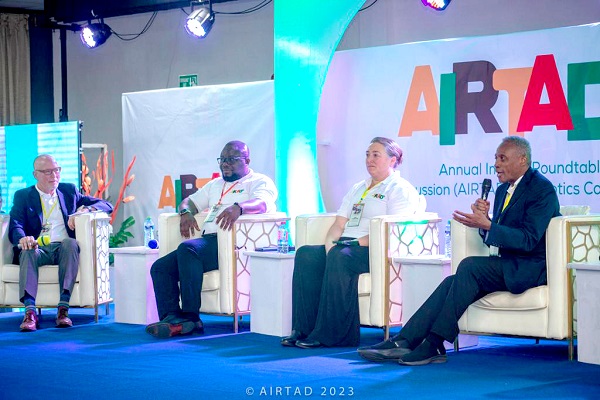
Participants in a roundtable discussion on Science, Technology, Engineering and Mathematics (STEM) education have called for the promotion and more investment into Science, Technology, Engineering, Arts and Mathematics (STEAM) education.
According to them, even though all signs pointed to STEM education as the future, the Arts still had a significant role to play in shaping the future of the world.
“We are all aware that STEM education is the way to go, but we still need the Arts to teach our young people how to collaborate and live with each other as a human society and that is what the Arts bring on board,” they said.
The discussion was organised by The Yamoransa Model (YM) Labs Programme, funded by the Helping Africa Foundation (HAF), as part of its second Annual Impact Roundtable Discussion (AIRTAD ’23) and robotics competition.
Managed by IMPLEMENTERS, a non-profit organisation, the event was on the theme: “The YM labs programme – Building an inclusive and sustainable STEAM education for the future.”
Background
The YM Labs Programme provides young people in primary, junior and senior high levels of education in selected communities with an opportunity to engage STEM education through practical experience by providing them with an information and communications technology (ICT) centre equipped with educational content and multimedia, as well as a robotics labs, AR/VR learning and 3D printing.
The AIRTAD ’23, therefore, is a platform to share, with the world, the work HAF has done with the YM Labs Programme towards impacting lives through STEAM education over the last six years.
Also, the robotics competition associated with AIRTAD serves as an avenue for beneficiaries of the YM Labs to showcase the theoretical and practical skills they have acquired from using the labs over the years.
STEAM DEVELOPMENT
The Executive Director of HAF, Japhet Aryiku, noted that STEAM education was the major key to achieving sustainable development in the country.
He explained that due to its interdisciplinary model, the incorporation of various forms of Arts disciplines such as the humanities and actual art, like painting, the mind of children would be opened enough to be able to learn and do anything.
The Project Director of IMPLEMENTERS and YM Labs Programme, Kafui Prebbie, maintained that the arts were equally as important as the maths and science because they offered the human mind a level of emotional intelligence, which was necessary to create a balanced world.
“We have all met people who are very brilliant and can do all the science and calculations, but nobody can relate to them; and these are the kind of people who will use their STEM to do things without the heart,” he explained.
Women participation
The Associate Vice Chancellor of International Affairs of the University of Colorado, Alana C. Jones, noted that although women participation in STEM fields had grown from less than 10 per cent to a little under 30 per cent over the last five decades, there was still much left to be done
“It is not about capability or competence, because research tells us that women and girls have the same capabilities and abilities as the boys and the men.
“It is external factors that are influencing girls and women entering into STEM and STEAM fields,” she explained.
